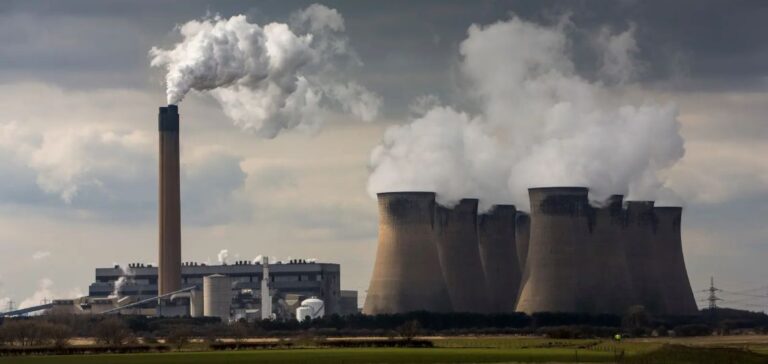The UK recorded a 3.6% reduction in its greenhouse gas emissions in 2024, according to an analysis published by Carbon Brief. This decrease is largely attributed to the closure, in September, of the country’s last coal power plant, a first for a G7 member. In November, the government also banned the opening of new coal mines, effectively ending the exploitation of this resource within the UK.
Historic Decline in Coal Usage
Coal use in the UK has reached its lowest level since 1666, a century before the Industrial Revolution. This trend was further reinforced by the shutdown of one of the country’s last blast furnaces, located at the Port Talbot steelworks in Wales. The closure of this facility marked a significant step in reducing industrial emissions, although the steel sector remains a significant contributor to CO₂ emissions.
Slower Pace of Emissions Reduction
Despite this decrease, the pace of emissions reduction slowed compared to 2023, when emissions had dropped by 5.1%. This trend is also observed in France and Germany, where reductions in 2024 have been less pronounced than in the previous year. In contrast, China saw a slight increase in its emissions, while the United States reduced its greenhouse gas emissions by only 0.2%, according to the Rhodium Group research centre.
Transforming Transport and Energy
The UK’s emissions decline in 2024 was also influenced by a sharp increase in the number of electric vehicles on the road, up nearly 40% for the year. This rapid adoption of electric technologies, combined with a record level of decarbonised electricity generation, has helped mitigate reliance on fossil fuels. Offshore wind energy plays a key role in the country’s energy mix, although the UK still lags behind Scandinavian countries, which are predominantly powered by hydropower and wind energy.
Aspiring Reduction Targets
With a total emissions reduction of 54% compared to 1990 levels, the UK is among the countries that have reduced their carbon footprint the most in recent decades. However, to achieve its target of reducing emissions by at least 81% by 2035, the country will need to maintain a steady decarbonisation trajectory, according to Carbon Brief.






















